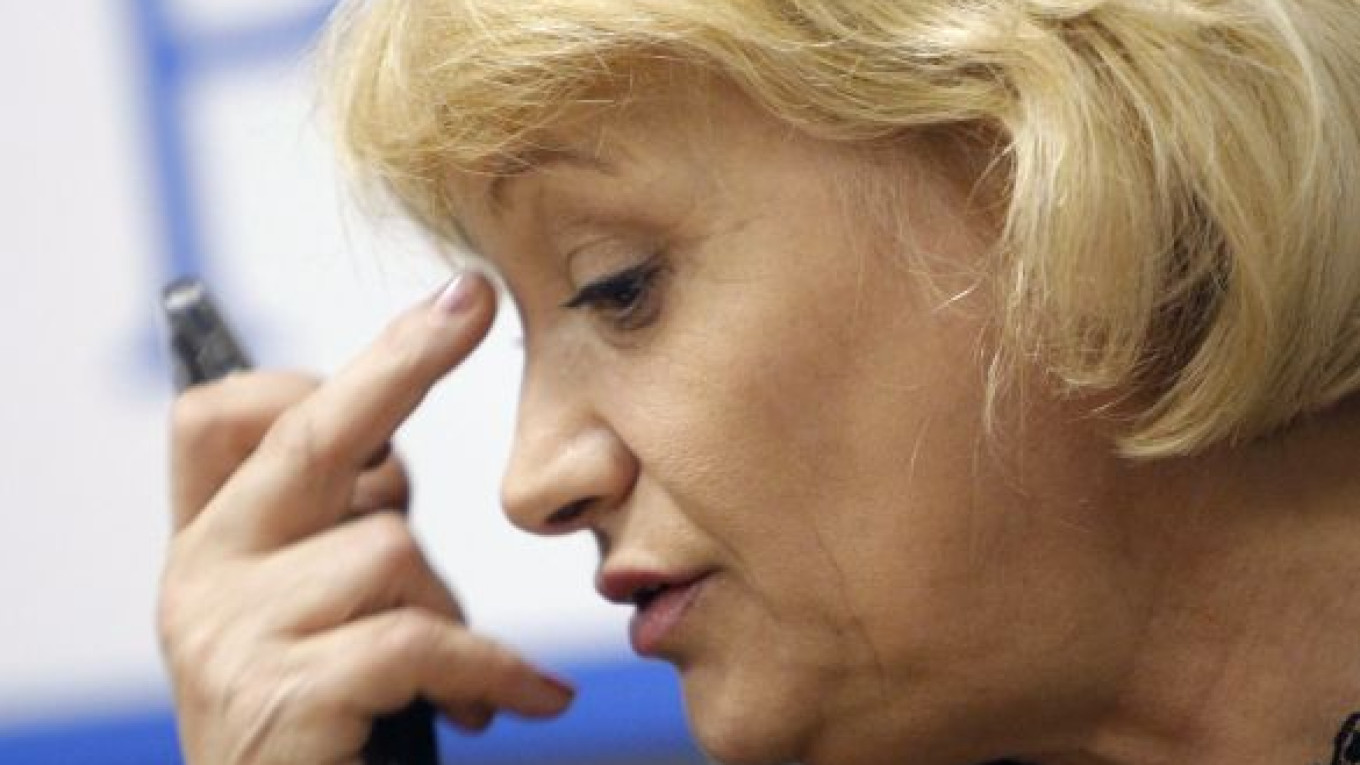OKTYABRSKY, Bashkorstostan — Elections monitor Natalya Rakhimova spent her morning watching people plow their way through snowdrifts to get to their polling station and vote in a Bashkortostan city.
But as soon as she started complaining about violations, officials in Oktyabrsky kicked her out because "her badge was too big."
This was a typical sight on elections day in Bashkortostan, a Ural Mountain region known for its oil fields but not its democratic record.
Local officials went out of their way to bar opposition observers and journalists — including a Moscow Times reporter — from polling stations or at least obstruct their work.
The republic is caught in an undercover struggle between the old establishment and allies of the new president, Rustem Khamitov, who needs to prove his electoral usefulness to the Kremlin — and is using any means necessary, local opposition activists said.
"I've been sitting at the polling station since the early morning with my badge, and nobody complained. But as soon as I made a noise about violations, they removed me," Rakhimova said outside polling station No. 525 in Oktyabrsky, a city of 110,000, located 180 kilometers from the regional capital, Ufa, and surrounded by swinging oil rigs.
She did not enjoy a warm reception during the time she was allowed to stay in the polling station, either, said Rakhimova, who visited as a representative of the Communist Party's newspaper Kommunist Bashkortostana.
The observers were seated too far away from the ballot boxes, and lights in the room were blindingly aimed at their eyes, Rakhimova said Sunday afternoon.
She was eventually barred from the polling station along with several other observers with the Communists on a complaint from a representative of the ruling United Russia party.
"They cited some law introduced in June saying that badges shouldn't be bigger than 10 centimeters," she said. The law does exist, but it says nothing about punishment for oversized badges being a ban from a polling station.
The Moscow Times reporter was barred from the same polling station about two hours earlier on accusations that she would "hinder the election process."
"Why did you choose our station for you work?" asked Natalya Spirina, the polling station's head.
When informed that the reporter was assigned to cover elections in the region, Spirina said, "We already have observers and press." She then demanded that the reporter leave and not return without a permission from the city's elections committee or face expulsion by the police.
Elections committee head Vitaly Borodin said he could not help, citing a technicality involving the need for a specific form for the media. Asked how the form could be obtained, he replied, "Ask Churov."
Central Elections Commission head Vladimir Churov, however, appeared to have little to say on the matter because his commission's web site has never reported the existence of a specific form for the media.
Artur Abdullov, a representative of the Liberal Democratic Party who was also thrown out from a polling station in Oktyabrsky on technicalities, said six party observers across town shared his fate.
Bashkortostan voted 82 percent for United Russia in the latest State Duma elections in 2007, or 16 percent above the national average. United Russia also took all 35 seats in the republican parliament, or kurultai, in 2009 elections, a result reminiscent of the authoritarian regimes of the Central Asian nations, to which the predominantly Muslim Bashkortostan has both geographical and cultural proximity.
Bashkortostan was governed by political heavyweight Murtaza Rakhimov from 1993 to last year, when the Kremlin replaced him with Khamitov. This has led to a simmering conflict in the region's ruling elite as Khamitov has gradually installed his people in place Rakhimov's old guard, who have fought back by covertly sabotaging his efforts, local opposition activists said.
"United Russia's positions in the region took significant damage from the [2008 financial] crisis, so it has to try hard to rig the vote using any method possible," local opposition activist Alexei Nezhivoi told The Moscow Times.
Some residents saw no need to be persuaded to vote for the Kremlin's party. Oktyabrsky resident Anatoly, a 46-year-old mechanic, said as he waited for his wife outside Polling Station No. 525 that he had spotted no violations as he cast his own ballot for United Russia.
"I voted for United Russia, because I see no other alternative," he said. He refused to give his last name, without elaborating why.
Another voter, Lyubov Ivanova, 82, also said she saw no violations as she marked her ballot. She voted for the Communists. "I didn't vote for United Russia because they are crooks who have cleared out farms and factories," she said.
She added that another fault of the ruling party was that it was responsible for installing a metal front door that she did not like in her apartment building.
A Message from The Moscow Times:
Dear readers,
We are facing unprecedented challenges. Russia's Prosecutor General's Office has designated The Moscow Times as an "undesirable" organization, criminalizing our work and putting our staff at risk of prosecution. This follows our earlier unjust labeling as a "foreign agent."
These actions are direct attempts to silence independent journalism in Russia. The authorities claim our work "discredits the decisions of the Russian leadership." We see things differently: we strive to provide accurate, unbiased reporting on Russia.
We, the journalists of The Moscow Times, refuse to be silenced. But to continue our work, we need your help.
Your support, no matter how small, makes a world of difference. If you can, please support us monthly starting from just $2. It's quick to set up, and every contribution makes a significant impact.
By supporting The Moscow Times, you're defending open, independent journalism in the face of repression. Thank you for standing with us.
Remind me later.


